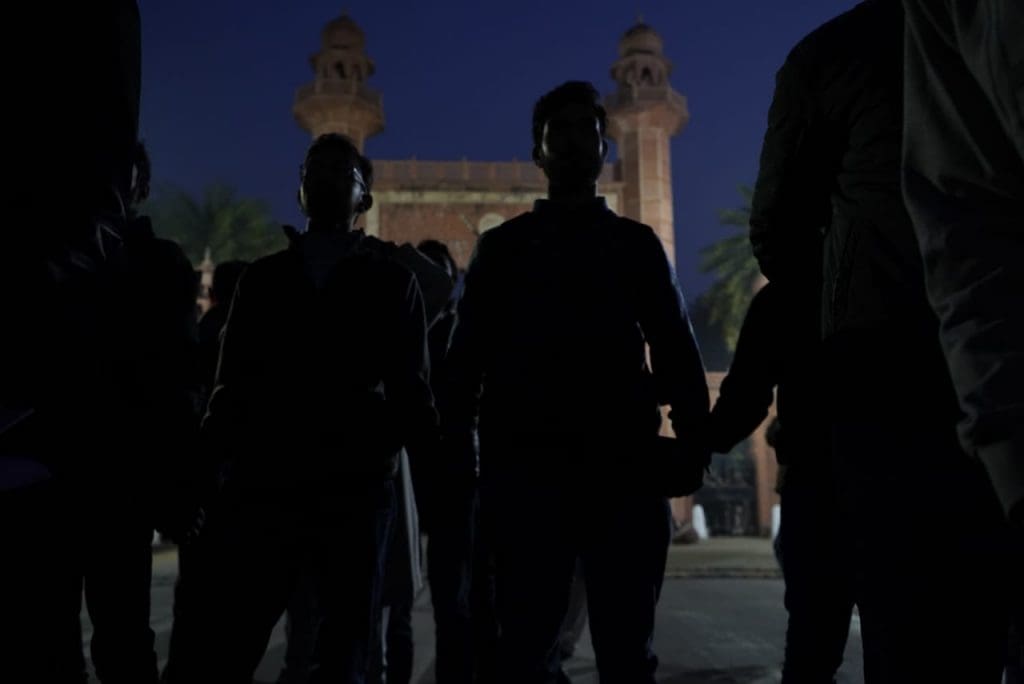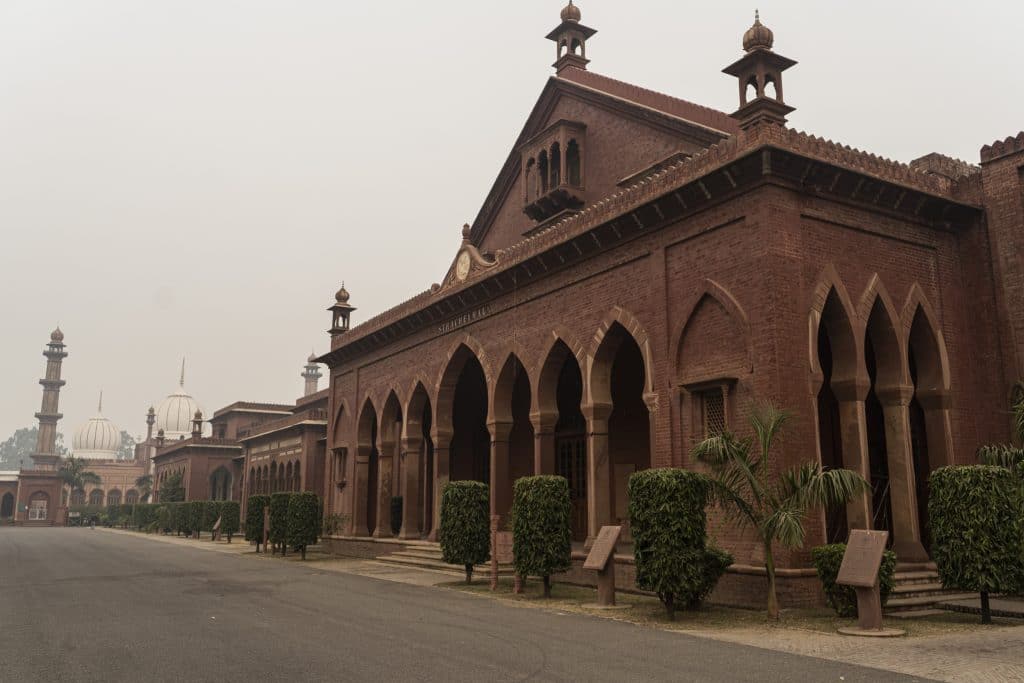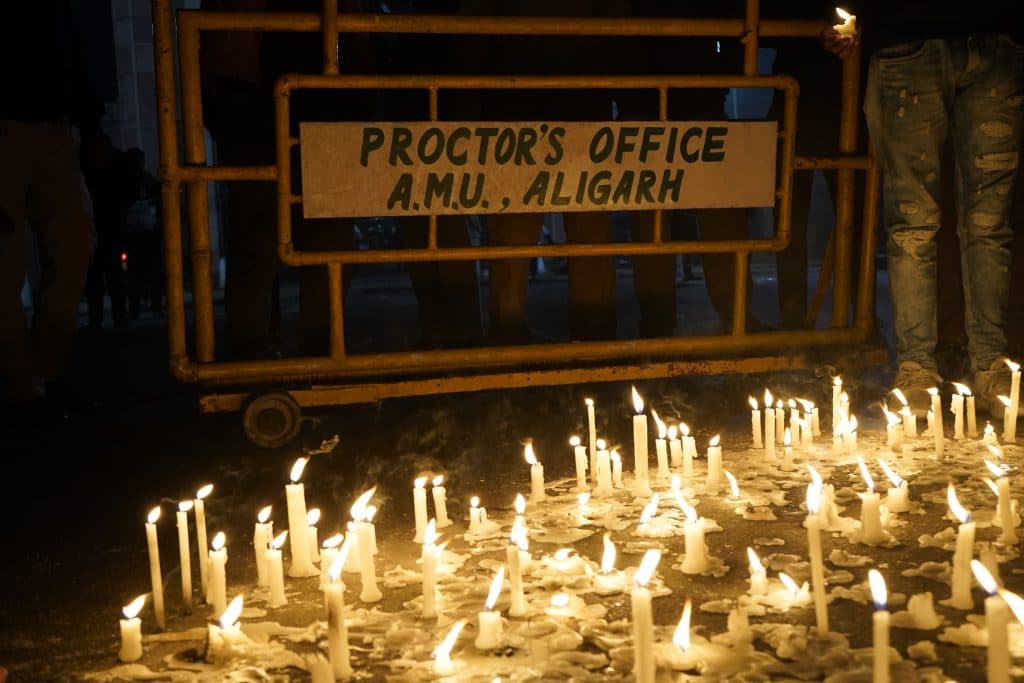
Mohammed Nihad PV
Prime Minister Narendra Modi is going to address the centenary celebrations event of Aligarh Muslim University on Tuesday, 22 December 2020. Modi’s presence stirred up a heated debate among the teachers and students of AMU since the announcement. Many students, professors and alumni expressed their disappointment through social media. In a letter addressing the staff, students and other members of AMU fraternity, Prof. Tariq Mansoor the vice-chancellor of the university appealed to keep the centenary celebrations “above politics”.
Many professors borrowed the same phrase and asked the students to rise “above politics”. Like someone pointed out, the statement rhymes well with the “too much democracy” comment made by NITI Aayog CEO Amitabh Kant. This is exactly what happens when people in a university adopt the state narrative. No matter how hard you try to hide, the resemblance will be revealed. Why should we rise above politics?. Isn’t questioning one of the main intellectual activities that a student or an academician should do?
Political memory
Years and days are not just numbers, they bear the political memory of the people. While AMU celebrates 100 years of its existence, this December also marks the first anniversary of police brutality on the students of AMU, JMI and the civilians of different parts of the country. The same month completes 28 years after the Babri Masjid demolition. If just a month has this much blood and pain to remember, it’s impossible to rise above politics. While Narendra Modi addresses the online event, his voice can be traced back to 2002 Gujarat where women and children were butchered in daylight. The question is not about his impunity to be wherever he wishes. For the head of a regime which can send paramilitary forces to attack the innocent students inside a campus, it’s not at all a big deal to attend an online event. One of the dangerous developments that we have seen in this chain of events is the praise that he has received till now from the “academicians” of a prestigious university. How ironic is to welcome a person who has become the epitome of hate and violence to a space where ideas clash?. The voices that were supposed to stand tall bowed down with pleasure forgetting their moral responsibility.


Many chose to remain silent or displayed their indifference. But even a word of courage could have made a change. The courage to pose the right question at the right time. Like Edward Said puts it rightly in his book “Representations of the intellectual”, speaking the truth to power is “carefully weighing the alternatives, picking the right one, and then intelligently representing it where it can do the best and cause the right change”.
Sir Syed, funds and other tools of appropriation
Using the Sir Syed analogy to justify and glorify administrative policies is a long-lived tradition of AMU. It’s not different in the case of Modi invitation too. Anecdotes from the life of Sir Syed are picked out of the context and quoted to adorn the sheer sycophancy disguised as wisdom. I remember the words of a professor in response to my question regarding the restrictions on political freedom inside the campus. With an easy smile on his face, he said: “We are proud collaborators, like Sir Syed”. Sir Syed’s life is open to historical debates, but it shouldn’t be a cheap tool of appropriation. Plight regarding funds is another tool. Funds for a university are not like pennies thrown at a beggar. Funding education is one of the important functions of a government. It is not something to be functionalized by selling the conscience. Universities are free spaces and submissiveness never help their “real existence”.As long as we give room for domination, there will be worries and worried. The past experience shows us that very clearly. Even if the university survives at the cost of the aspirations of the Muslim community it stood for, what is the meaning of such an existence?.


“Reconciliation” is a two-way process
The collective memory of Muslims and all other oppressed sections is an act of resistance against the Hindutva fascism to challenge the imposed amnesia. Reconciliation doesn’t work by shifting the blame on ourselves and moving on to face further suppression. It is possible only when things are in balance. It is impossible when the dispossessed Muslim individual and his/her views are vulgar in the eyes of the oppressor and the public. Till then, confrontation is the only path. In the words of the French decolonial scholar Houria Bouteldja, “How can we envision love between us if the privilege of the one relies on the oppression of the other?”.
Mohammed Nihad PV is a graduate in sociology from Aligarh Muslim University.



